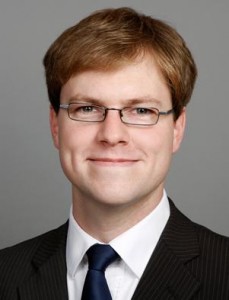Speaker: Dr. Tobias Schröder
Title: Changing minds about cars: Modeling the adoption of innovations in transportation
Date: Tuesday, February 26th 2013
Category: Seminar
Abstract:
Dr. Schröder will present an agent-based model of the likely future adoption of electric vehicles by consumers in the city of Berlin, Germany. The model is based on psychological theory about the role of emotion in decision-making, on social psychological theory about persuasion and on sociological knowledge about the flows of information in social networks. Model parameters are based on empirical data from focus groups and a representative survey of the population of Berlin. Scenarios will be presented about the likely future adoption of electric vehicles based on the simulation of various proposed policy measures. Dr. Schröder is looking forward to discussing the potential of psychologically plausible social simulation tools to inform the decisions of political leaders and business managers.
Speaker Biography:
Tobias Schröder is a Postdoctoral Fellow at the University of Waterloo’s Centre for Theoretical Neuroscience and a member of the research cluster of excellence “Languages of Emotion” at the Free University of Berlin, Germany. Tobias received his PhD in Social and Organizational Psychology from Humboldt University of Berlin, Germany, in 2009. From 2008-2010, he was a project manager at the Institut Futur, a Berlin-based think tank advising governments and other stakeholders on plausible scenarios of future sustainable development.
Tobias’ research focuses on understanding affective processes as they drive human social interaction and communication. He is interested in both basic (e.g., how does the brain represent emotion?) and highly applied questions (e.g., how do emotions foster or impede the spread of social innovations?). His research is highly interdisciplinary, drawing on insights from psychology, sociology, and cognitive neuroscience.
His current work at the University of Waterloo (with Paul Thagard) is devoted to developing computer models of emotion and social behavior. Additional projects in collaboration with the Free University of Berlin include the development of a psychologically realistic agent-based model of likely consumer acceptance of electric vehicles, as well as experimental work related to how brains use affective processes to represent social structure.


